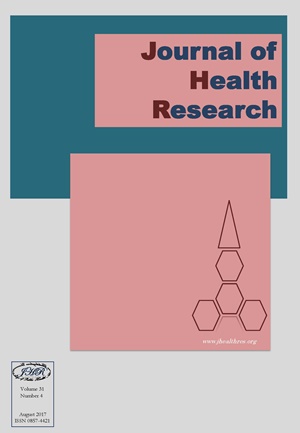Validation of a Short Version of the Emotional Crisis Scale for Thai Undergraduates
Keywords:
Emotional crisis, Scale validation, Thai undergraduatesAbstract
Background: In recent decades, societies worldwide have experienced an increased risk of environmental disasters, difficulties in the political environment, as well as threats from advanced technologies. The lives of college and university students are becoming more complicated as a result of these risks. This study aimed to examine the psychometric properties of a short version of the Emotional Crisis Scale in Thai undergraduates.
Method: The Emotional Crisis Scale (ECS) consists of 3 subscales: precipitating event (PE), ineffective problem-solving (IPS), and functionally debilitating mental state (FDMS). There are 12 items in the scale with 4 items for each subscale. Internal Consistency for the scale and subscales were examined using a sample of 548 college and university students from public and private universities nationwide in Thailand. Their mean age was 19.96 ± 1.43 years old. Confirmatory factor analyses were conducted to determine whether the measurement model fit the data. A Pearson’s correlation with the 21-Depression, Anxiety and Stress Scale (DASS-21) was computed to assess concurrent validity.
Results: The psychometric properties of the scale demonstrated good reliability with a Cronbach's alpha of .85 (.60, .66, and .74 for the subscales, respectively). The scale construct validity was confirmed by the first order of confirmatory factor analysis, which revealed that the model fit with the empirical data (Chi-square = 66.21; df = 49; p = .05; CFI = 0.99; TLI = 0.99; RMSEA = .03). Scale convergent validity was examined and it demonstrated an acceptable criterion validity: a moderate positive correlation with the DASS-21 (.38-60 p<.01).
Conclusion: The short version of the emotional crisis scale can be instrumental in evaluating emotional overload and crisis among undergraduates. This scale may be appropriate to use in helping with early identification and interventions that addresses mental health and emotional well-being issues among undergraduates.






